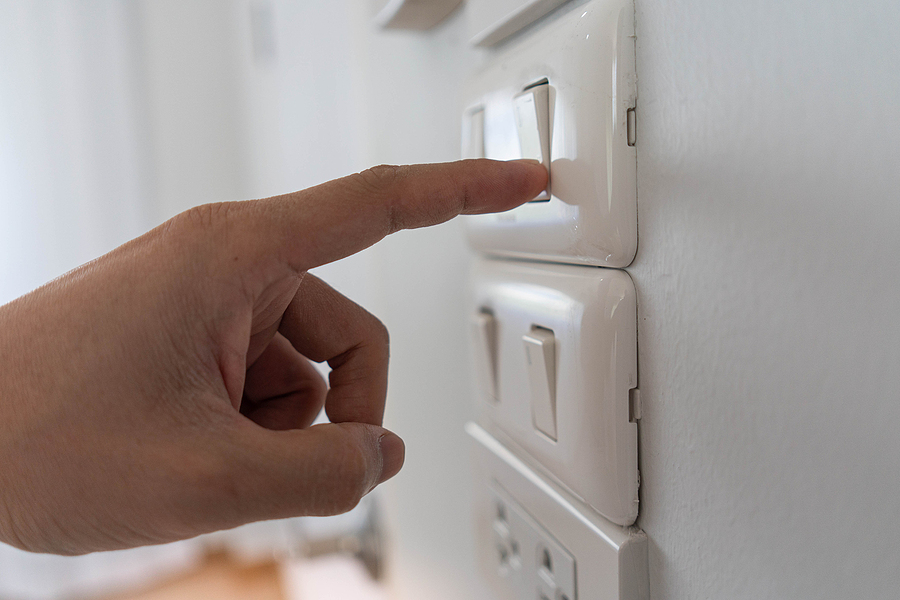With the energy price cap set to soar, 7 practical ways to reduce your fuel bills
Chancellor Rishi Sunak is expected to announce support for poorer households, as the average energy bill could rise to over £1,900
Millions of households are facing soaring energy bills, with the energy price cap expected to rise by 50%.
Ofgem is expected to make an announcement on Thursday (February 3), with increasing wholesale gas prices meaning the average bill could rise to £1,915.
🙋A question we often hear is “what is the price cap?”
While we don’t increase or decrease the price of energy, we calculate the level of the government’s #EnergyPriceCap that applies to default energy tariffs.
This may affect you. See how it works📺 https://t.co/7SyVaj2ogq pic.twitter.com/4wqpvMDGpl
— Ofgem (@ofgem) January 25, 2022
While chancellor Rishi Sunak is likely to announce support for the poorest households, many people are understandably nervous about the rising cost of living.
So, are there some realistic ways to reduce your gas and electricity bills? We ask the experts for their advice.
Prevent heat loss

“Draught-proofing your home yourself is a cheap way to save on energy bills,” says Liz Edwards, Editor-in-Chief at the personal finance comparison site, Finder.com. “You need ventilation, but if you’ve got unwanted draughts from windows, for example, you can buy foam strips or a metal or plastic version with brushes.”
British Gas engineer Sunny Solanky says: “Fit excluders to the bottom of the doors to keep your bedroom nice and cosy,” while Nick Duggan, owner of The Radiator Centre, recommends installing a chimney cushion (an inflatable draught excluder) as “20% of a room’s heat can be lost up an open chimney.”
Try a TRV
“To improve efficiencies further, consider installing thermostatic radiator valves (TRVs) on the radiators,” says Duggan. “These help regulate the heat in a room in order to provide a more constant temperature, rather than the continual intervention that a manual valve can require. These days, they come in a wide range of styles and finishes that suit almost any situation.”
Switch to LED bulbs

“Lighting makes up 15% of the average UK household electricity consumption,” says Paul Stringer, director at Norton Finance. Based on the average household using 67 lightbulbs a year, switching from incandescent bulbs to LED will require an initial outlay, but you could “save up to £603 in energy costs, not to mention it’s also better for the environment, as LEDs lower your carbon footprint.”
Choose energy-efficient appliances
You can reduce costs in the long run by shopping smartly whenever you need to replace an appliance.
Edwards says: “You could make savings of hundreds of pounds over the life of a fridge freezer, by choosing an appliance that has a good energy rating. As of March 2021, energy ratings are A to G. A, C or D rating is pretty good under the new system.”
Turn off unused appliances

It takes seconds to flip a switch, but it’s worth making sure you’re not wasting energy with lights and appliances.
“When you leave a room, remember to turn the lights off and you could save around £11 a year,” says Solanky. And don’t forget electronics like TVs, computers and speakers: “If you can see the little red light, they’re still using electricity in standby mode, and can add up to £35 to your bill.”
Get a smart meter
“A smart meter can track what you’re actually using,” says Simon Crowther, founder of FPS Environmental. “Start by turning everything off, then turn things on one at a time, to see exactly how much each appliance is costing you. This is also great for seeing if your out-of-date appliances are costing you much more than it would cost to replace them for a better-energy-rated new appliance.”
Look after your boiler

An inefficient boiler could be adding to your energy costs gradually over time.
“The most obvious sign that your boiler is becoming less efficient is if your house is not warming up as it should, or how it has done in past years,” says Suzy Tiffany, home claims director at More Than insurance. “It’s worth getting your boiler serviced regularly, at least once a year, to help ensure that it is running as efficiently as possible – this may save you money in the long run.”
If you live in an area with hard water, limescale build-up could be making your boiler less efficient.
“For the 60% of the UK that is supplied with hard water, bills could be up to 25% higher,” says Samantha Mant, CEO at Halcyan Water Conditioners. Treating hard water can “protect the entire home and offer both preventative action for new boilers and reduce limescale deposits which are already present in pipes and other appliances”.
The Press Association
Latest posts by The Press Association (see all)
- Special stamps to mark 80th anniversary of VE Day - April 24, 2025
- Test your knowledge with our penguin-themed quiz - April 24, 2025
- Prince Louis shows off missing front teeth in new photo to mark seventh birthday - April 23, 2025
- Why does hearing get worse as we get older? - April 23, 2025
- Top scented plants for your garden, from a Kew expert - April 22, 2025



















